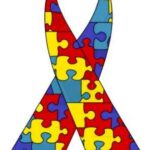 In addition to impacting the child and family’s quality of life, recent estimates place the lifetime cost for an individual with autism spectrum disorder at $3.2 million.
In addition to impacting the child and family’s quality of life, recent estimates place the lifetime cost for an individual with autism spectrum disorder at $3.2 million.
Researchers at Life Chiropractic College West, in Hayward, California, reviewed the evidence for chiropractic treatment. Continue reading Review: Chiropractic care for autism →
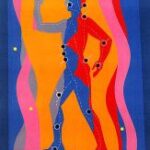 Autism spectrum disorders are characterized by impaired social interaction and communication, and lack of flexibility of thought and behavior.
Autism spectrum disorders are characterized by impaired social interaction and communication, and lack of flexibility of thought and behavior.
In this Cochrane review, researchers at The University of Hong Kong, Queen Mary Hospital, in China, report on the effectiveness of acupuncture to improve autistic features. Continue reading Review: Acupuncture for autism spectrum disorders →
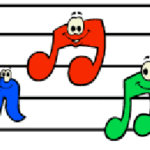 Researchers at Kaohsiung Medical University, in Taiwan reviewed the evidence related to music’s effect on people with different mental illnesses. Continue reading Sumarizing the mental health implications of music therapy →
Researchers at Kaohsiung Medical University, in Taiwan reviewed the evidence related to music’s effect on people with different mental illnesses. Continue reading Sumarizing the mental health implications of music therapy →
 It’s believed that early intensive behavioral and developmental interventions for young children with autism spectrum disorders (ASDs) may enhance developmental outcomes.
It’s believed that early intensive behavioral and developmental interventions for young children with autism spectrum disorders (ASDs) may enhance developmental outcomes.
Researchers at Vanderbilt University, in Nashville, Tennessee reviewed the evidence in children aged 12 and younger with ASDs. Continue reading Lovass and behavioral intervention for autism →
 It’s suggested that omega-3 fatty acids might have an effect on disorders such as ADHD, autism, and dyslexia.
It’s suggested that omega-3 fatty acids might have an effect on disorders such as ADHD, autism, and dyslexia.
Researchers from the University of Wales, in Newport, UK looked for an association between omega-3 tissue levels and learning and behavior in school-aged children. Continue reading Is there a relationship between omega-3 and childrens’ behavior? →
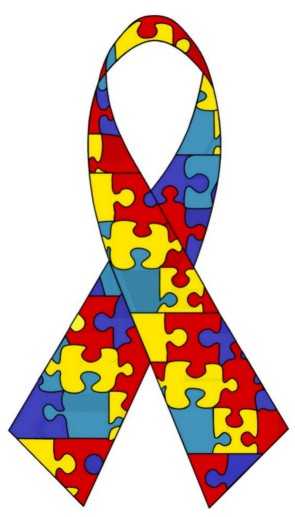 It’s just a report on 3 patients, but it’s important because some people with autism are already taking St. John’s wort. Continue reading First report: St. John’s Wort for autism →
It’s just a report on 3 patients, but it’s important because some people with autism are already taking St. John’s wort. Continue reading First report: St. John’s Wort for autism →
 Sleep disturbance is common in autism spectrum disorders (ASD) and melatonin is widely prescribed despite a lack of guidelines.
Sleep disturbance is common in autism spectrum disorders (ASD) and melatonin is widely prescribed despite a lack of guidelines.
Researchers in France reviewed the evidence. Continue reading Review: Melatonin to treat autism spectrum disorders →
 8 companies of over-the-counter (OTC) chelation products were told that they are selling unapproved drugs and devices and are violating federal law with respect to unproven claims about these products.
8 companies of over-the-counter (OTC) chelation products were told that they are selling unapproved drugs and devices and are violating federal law with respect to unproven claims about these products.
These products purport to treat a range of diseases by removing toxic metals from the body. Some also claim to treat autism spectrum disorder, cardiovascular diseases, Parkinson’s disease, Alzheimer’s disease, macular degeneration, and other serious conditions. Continue reading Consumer Alert: FDA warns about OTC chelation products →
 During the Sleep 2009 meeting, researchers from Vanderbilt University, in Nashville, Tennessee reported that in children with autism spectrum disorders, low-dose melatonin may be an effective treatment for insomnia. Continue reading Melatonin to treat insomnia in autistic children →
During the Sleep 2009 meeting, researchers from Vanderbilt University, in Nashville, Tennessee reported that in children with autism spectrum disorders, low-dose melatonin may be an effective treatment for insomnia. Continue reading Melatonin to treat insomnia in autistic children →
 Researchers from the University of Pavia in Italy report the results from a small study. Continue reading Omega-3 supplementation in autistic adults →
Researchers from the University of Pavia in Italy report the results from a small study. Continue reading Omega-3 supplementation in autistic adults →
 Â “The National Institute of Mental Health (NIMH) has decided that resources are better directed at this time to testing other potential therapies for autism spectrum disorders, and is not pursuing the additional review required to begin the study.” Continue reading Chelation study for autism cancelled →
 “The National Institute of Mental Health (NIMH) has decided that resources are better directed at this time to testing other potential therapies for autism spectrum disorders, and is not pursuing the additional review required to begin the study.” Continue reading Chelation study for autism cancelled →
 Dr Alfred Tomatis developed a technique using modified music to stimulate connections between the ear and the nervous system in order to affect aspects of human development and behavior.
Dr Alfred Tomatis developed a technique using modified music to stimulate connections between the ear and the nervous system in order to affect aspects of human development and behavior.
His research suggested that the hearing of many people with autism is severely sensitized to the point that even normal classroom noises are painful and disorienting.
But, is it worth the effort? Continue reading The Tomatis Method in autism →
 Researchers at Aalborg University in Denmark studied the effects of improvisational music therapy on attention behaviors in autistic pre-school children. Continue reading Music therapy and autistic children →
Researchers at Aalborg University in Denmark studied the effects of improvisational music therapy on attention behaviors in autistic pre-school children. Continue reading Music therapy and autistic children →
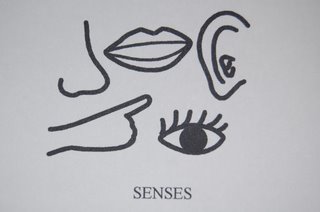 Snoezelen (or multi-sensory stimulation) is used to promote positive mood in older people with dementia, as well as manage maladaptive behaviors (eg, autism and other behaviors that interfere with everyday activities).
Snoezelen (or multi-sensory stimulation) is used to promote positive mood in older people with dementia, as well as manage maladaptive behaviors (eg, autism and other behaviors that interfere with everyday activities).
The Snoezelen (pronounced SNOOzelen) environment provides gentle stimulation of the primary senses. The objective is to overcome inhibitions, enhance self-esteem, and reduce tension.
A Cochrane review found no scientific support, but others disagree. Continue reading Snoezelen for dementia →
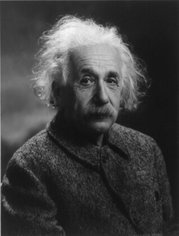 Dr. Susan Levy reviewed charts for 284 patients at the Regional Autism Center, which is associated with The Children’s Hospital of Philadelphia. She found that 32% of the children were using CAM.
Dr. Susan Levy reviewed charts for 284 patients at the Regional Autism Center, which is associated with The Children’s Hospital of Philadelphia. She found that 32% of the children were using CAM.
Here’s why her work is important.
Continue reading Use of CAM by children with autism →
 Researchers from the Medical University of Vienna think “omega-3 fatty acids may be an effective treatment for children with autism.” Continue reading Studying the effects of omega-3 on children with autism →
Researchers from the Medical University of Vienna think “omega-3 fatty acids may be an effective treatment for children with autism.” Continue reading Studying the effects of omega-3 on children with autism →
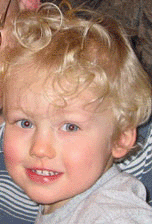 “Many chiropractors and other manipulative therapists purport to treat autism and related disorders with good improvements,” according to a review in Clinical Chiropractic.
“Many chiropractors and other manipulative therapists purport to treat autism and related disorders with good improvements,” according to a review in Clinical Chiropractic.
Aside from case reports, support for the role of chiropractic is limited to one study in 26 autistic children who were followed for 9 months.
Here are the results.
Continue reading Chiropractic and autism: What’s the evidence? →
 In an earlier post it was concluded that lavender oil treatments might be helpful for treating insomnia in adults. Children with autism often have sleep difficulties. But this latest study suggests it does not appear that their sleep patterns are altered by this treatment.
In an earlier post it was concluded that lavender oil treatments might be helpful for treating insomnia in adults. Children with autism often have sleep difficulties. But this latest study suggests it does not appear that their sleep patterns are altered by this treatment.
Here are the details of the study. Do you agree with the conclusions?
Continue reading Might aromatherapy massage improve sleep in children with autism? →
Complementary and Alternative Medicine: Fair, Balanced, and to the Point
 In addition to impacting the child and family’s quality of life, recent estimates place the lifetime cost for an individual with autism spectrum disorder at $3.2 million.
In addition to impacting the child and family’s quality of life, recent estimates place the lifetime cost for an individual with autism spectrum disorder at $3.2 million.


 It’s just a
It’s just a  Snoezelen (or multi-sensory stimulation) is used to promote positive mood in older people with dementia, as well as manage maladaptive behaviors (eg, autism and other behaviors that interfere with everyday activities).
Snoezelen (or multi-sensory stimulation) is used to promote positive mood in older people with dementia, as well as manage maladaptive behaviors (eg, autism and other behaviors that interfere with everyday activities). Dr. Susan Levy reviewed charts for 284 patients at the Regional Autism Center, which is associated with The Children’s Hospital of Philadelphia. She found that 32% of the children were using CAM.
Dr. Susan Levy reviewed charts for 284 patients at the Regional Autism Center, which is associated with The Children’s Hospital of Philadelphia. She found that 32% of the children were using CAM. “Many chiropractors and other manipulative therapists purport to treat autism and related disorders with good improvements,” according to a review in Clinical Chiropractic.
“Many chiropractors and other manipulative therapists purport to treat autism and related disorders with good improvements,” according to a review in Clinical Chiropractic.